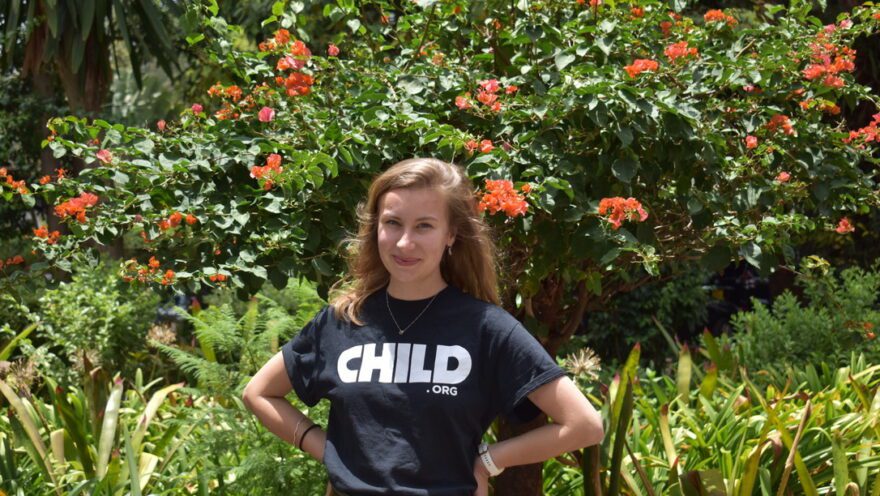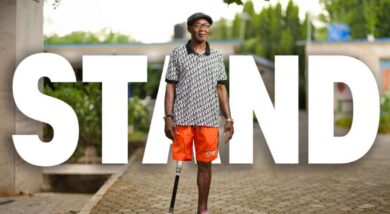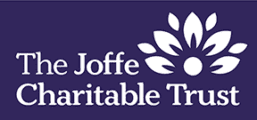8 May 2024
Career Journeys Blog Series #1 – Lucy James from Child.org

Welcome to the first in this blog series where we learn about the fascinating paths our members have taken to reach the roles they are currently in.
In a sector where building a career is notoriously confusing to navigate, with no singular clear route to follow, we wanted to share stories of our members who work in international development to inspire others and show early career professionals the numerous and surprising ways there are to success.
We hope you enjoy getting to know our members!
This month’s blog is from Lucy James, Income Manager at Child.org.
What first interested you about working in the international development/global solidarity sector?
After my undergraduate degree in French and Hispanic Studies, I was at a bit of a loss for what I wanted to do career-wise. I hadn’t found the university careers departments particularly helpful but I knew I didn’t particularly want to join a grad-scheme – I found the psychometric tests and lengthy recruitment process demoralising and alienating (I just didn’t “get” verbal reasoning). I had worked my socks off to get a really good degree, but I had no idea of “the next steps” so I worked in a series of quite tedious hospitality and temping roles while I figured out what I was interested in.
I kept coming back to job descriptions for roles in International Development, they looked so exciting! I saw all these brilliant organisations, working internationally and cross-culturally, grappling with how to influence and deliver change in education, gender, health, conflict resolution, environment, all working towards a more equitable and fair society. I was hooked.
How did you get into the sector? What was your first role?
There’s no doubt, getting a foot in the door and a paid role was the hardest step of my career – I just did not know where to start. It took a lot of applications, and a lot of getting back to the drawing board to look at roles, and my CV/experience and work out what a good “fit” was: by this I mean how to make my degree, prior volunteering and part-time jobs match the role they were looking for.
One of the downsides to the International Development sector is there are very few “entry level” roles. Charities, in particular, are very lean operations – small teams trying to deliver as efficiently as possible. At the time, unpaid internships and volunteering were the way in, and after failing to even get an interview at a paid role, I realised I’d need to get more voluntary experience.
My first role was a three-month unpaid internship with a small but growing international education charity working in their fundraising team on their flagship fundraising event. I got the role because a) I’d done a tonne of research on both the charity and the event and b) because it was a running event and I was a runner, so I had experience and interest in running events more broadly.
I had to balance a 4-day office-based internship with paid work on weekends and evenings, which was really tough, and would be impossible now given the cost of living. The sector has rightly moved away from unpaid internships, but the entry-level experience was invaluable, and my three month internship turned into a paid role within the fundraising team.
The most valuable career advice I’ve received.
“You have a choice – you can be a cog in a machine, in a generalist role in the field, or you can have a transformative impact in our fundraising team”.
About six weeks into my first internship, I had the opportunity to travel to Sierra Leone and work with local partners who were about to roll out a multi-year UK Aid-funded girls education programme. I spent two/three weeks in the field, with partners, learning in depth about the context and the work of the charity, and the specifics of a UK Aid grant. I travelled across the county, visiting local offices and their teams, helping them translate the grant criteria. I felt like I was living the dream, and I really thought I wanted to “work in programmes”, without really understanding what role that would be, or what it would mean.
My return to the UK coincided with a paid position becoming available in the UK fundraising team. Looking back, my CEO at the time expertly guided the “what next” conversation. Without pressuring me to make a decision, they laid it out very clearly that I could continue developing a career with experience in the field, supporting local partners, on a stipend (so unpaid, but with expenses and then potentially on a contract) where I would be a support just by value of adding resource, or I could come back to the UK and use my energy and have a transformative impact on a piece of our fundraising armoury that needed it.
Without being patronising, this one piece of advice helped me understand where I could add real value in international development: I didn’t have contextual expertise in either education, or West Africa, but I did have some domain expertise: I was a linguist, a skilled communicator and on top of that I was a problem solver with a lot of drive. This is what a lot of fundraising teams need. My best and most valuable contribution would be to help unlock the money tap – I still believe this to this day.
What advice would you give to someone looking to start a career in International Development?
I think often it’s the sector, rather than the role that interests you early in your career. Having that motivation is fantastic but remember that, when it comes down to it, you’re applying for a role not just to an organisation. These roles are immensely varied: from finance, HR, monitoring and evaluation to fundraising, policy or communications. Each has their own skills and requirements and you will need to meet these, or work towards them, to be successful in your job search.
If you’re stuck, look at the careers of people you respect or admire, or look at organisations that you want to work for and the jobs they are currently advertising, or the people who work for them currently. Look at what their career trajectory has been, look at their skills and then reflect back and look at 1) what you are good at 2) what your skills currently are and 3) what skills you want to develop. Use that as your basis for job searches and applications, and make sure you tailor your application to the role you are applying for.
A note on experience: tailor this to the role you are applying for: if it’s a fundraising role, have you personal experience of fundraising? For communications: have you written for student publications? Or freelance articles? You don’t need to have done long-term volunteering to build experience, but you do need to marry the experience you have with the role advertised.
What attributes do you think it’s important to have working in International Development?
I think attributes differ depending on your role and technical speciality. In fundraising, being resilient, working under pressure and having great front-facing people skills is key, and so many of these attributes are transferable.
More broadly, in international development, I think you do need to have an international mindset: an interest and awareness of history, culture, power dynamics and political economy. You also need to be open to and understand different ways of working, and recognise competing priorities particularly between different teams and partners and how to manage them.
Tips for getting experience beside long-term volunteering:
There’s lots you can do to develop your skills, without needing to commit to long-term volunteering:
- Short-term volunteering/placements: sometimes these will be advertised, sometimes you need to be bold and email an organisation directly! Identify an area or skill you want to build experience in and make that explicit when seeking experience.
- Skills building: You can learn and develop a lot of specific skills at home: think about the kind of job you want and look for skills they require, then look at what free courses and practice is available. For example: using Canva, editing videos, understanding social media are all key skills in comms roles that you can learn, for free, online through webinars, courses and through your own practice.
- Transferable skills: there’s probably a lot you do in your own time that is transferable; in particular participation in community groups, university societies, long-standing support of organisations. These are all really useful as experience working with others, in a more formal setting (as groups are often run by committees and you can put yourself forward for a position of leadership within the committee!).
Thank you to Lucy for sharing with us!
Also a huge thank you to Abbi Gutierrez (SWIDN member) for sparking the idea for these blogs at a recent SWIDN Open Office session.
If you have an interesting story about your career path and would like to be featured in this series, email Emma at info@swidn.org.uk.







